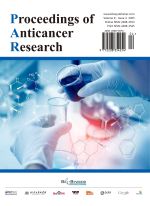Abstract
Objective: To investigate the efficacy of Buyang Huanwu Decoction in preventing the recurrence of advanced colonic adenomatous polyps after surgery. Methods: A total of 160 patients who underwent endoscopic treatment for advanced adenomatous polyps of the large intestine at the First People’s Hospital of Jintan, Changzhou, between March 2022 and March 2024 were enrolled in this study. The patients were randomly divided into an intervention group and a control group using a random number table. The control group received routine postoperative care, while the intervention group received Buyang Huanwu Decoction, starting one month after surgery. The decoction was administered warm, twice daily (200 ml per dose), one dose per day, for a total treatment duration of three months. Results: Before the intervention, there were no significant differences between the two groups in terms of TCM syndrome scores, and serum levels of G-17, IL-18, IL-6, COX2, and CRP (P > 0.05). After the intervention, both groups showed a decrease in TCM syndrome scores and serum levels of G-17, IL-18, IL-6, COX2, and CRP compared to pre-intervention values. The intervention group demonstrated a significantly greater reduction (P < 0.05). Three months after the intervention, there was no significant difference in polyp recurrence rates between the two groups (P > 0.05). However, six and twelve months after the intervention, the recurrence rates in the intervention group were significantly lower than those in the control group (P < 0.05). The incidence of adverse reactions was compared between two groups of patients. The intervention group had an incidence of 12.5%, while the control group had an incidence of 6.25%, with no statistically significant difference (P > 0.05). Conclusion: Buyang Huanwu Decoction has significant efficacy in preventing the recurrence of advanced colonic adenomatous polyps after surgery. It improves TCM syndrome scores, reduces oncogenic and inflammatory factors, significantly lowers postoperative polyp recurrence rates, and demonstrates good safety. It is a promising treatment for clinical promotion and application.
References
Yang X, Li Z, Li Y, et al., 2010, Characteristics of Adenomatous Polyps in the Large Intestine and Exploration of Their Relationship with Carcinogenesis. Western Medicine, 22(12): 2223–2225.
An Y, Yu X, Li H, et al., 2021, Investigation on Risk Factors for Recurrence After Endoscopic Treatment of Adenomatous Polyps in the Large Intestine. Ningxia Medical Journal, 43(6): 504–507.
Wang H, 2020, Clinical and Endoscopic Features of Non-Steroidal Anti-Inflammatory Drug-Related Upper Gastrointestinal Bleeding. Journal of Modern Medicine & Health Research, 4(22): 85–86.
Jin C, Lv B, 2020, Non-Steroidal Anti-Inflammatory Drug-Related Gastrointestinal Bleeding and Its Prevention and Treatment. Journal of Clinical Internal Medicine, 37(4): 250–252.
Yang X, 2024, Clinical Observation of Buyang Huanwu Decoction in the Adjuvant Treatment of Acute Cerebral Infarction. Journal of Practical Traditional Chinese Medicine, 40(12): 2513–2515.
Yan S, Duan X, Zhou S, 2024, Study on the Efficacy of Buyang Huanwu Decoction Combined with Warm Acupuncture in the Treatment of Muscle Strength Changes After Stroke. Harbin Medical Journal, 44(6): 118–120.
Feng Y, Yuan Y, Wang Q, 2024, Clinical Study on the Prevention of Chemotherapy-Related Peripheral Neurotoxicity in Gastric Cancer Patients with Buyang Huanwu Decoction. Jilin Journal of Traditional Chinese Medicine, 44(10): 1212–1215.
Bi J, Wang Y, 2024, Treatment of Hypercoagulable State in Advanced Gastric Cancer with Buyang Huanwu Decoction Combined with Moxibustion. Journal of Hebei Traditional Chinese Medicine, 39(3): 12–16.
Digestive Disease Group, Pathology Branch of Chinese Medical Association, 2020, Consensus on Pathological Diagnosis of Gastrointestinal Adenomas and Benign Epithelial Polyps. Chinese Journal of Pathology, 49(1): 3–11.
Key Specialty Cooperation Group of the National Administration of Traditional Chinese Medicine, 2015, TCM Diagnosis and Treatment Plan for Large Intestinal Polyps (Colon Polyps) (Trial).
Li D, Xing Y, Wu Z, et al., 2024, Research Progress and Thoughts on the Evaluation of Clinical Efficacy of Traditional Chinese Medicine. Tianjin Journal of Traditional Chinese Medicine, 41(9): 1200–1205.
Chen Y, Wang Z, Zhang W, 2023, Research Progress on the Treatment of Recurrence After Colorectal Polyp Surgery with Traditional Chinese Medicine. Guangming Journal of Chinese Medicine, 38(9): 1796–1799.
Liu F, Shi R, Cao B, 2020, Research Progress of Traditional Chinese Medicine in the Treatment of Colorectal Adenoma. Modern Journal of Integrated Traditional Chinese and Western Medicine, 29(27): 3070–3074.
Yang T, Jing X, Jiang W, et al., 2017, Clinical Study on the Inhibition of Recurrence After Intestinal Polyp Surgery with Syndrome Differentiation and Treatment of Traditional Chinese Medicine. Hunan Journal of Traditional Chinese Medicine, 33(4): 6–9.
Lin S, Chen Y, Lin S, 2012, Discussion on the TCM Disease Name of Colonic Polyps. Proceedings of the 24th National Academic Exchange Conference on Spleen and Stomach Diseases of the Chinese Medicine Association for Spleen and Stomach Diseases.
Tang X, Ren Y, He M, et al., 2025, Evaluation of Efficacy and Advantages of Traditional Chinese Medicine in Preventing and Treating the “Inflammation–Cancer Transformation” of Colorectal Adenoma–Colorectal Cancer and Its Mechanism. Chinese Journal of Information on Traditional Chinese Medicine, 32(02): 20–24.
Li B, Wang S, Liu Y, et al., 2024, Research Progress on the Mechanism of Colorectal Adenoma. Chinese Journal of Bases and Clinics in General Surgery, 31(12): 1540–1544.
Li H, He P, Li W, et al., 2024, Research Progress on Chemical Constituents and Pharmacological Effects of Buyang Huanwu Decoction and Prediction of Quality Markers (Q-Marker). Chinese Traditional and Herbal Drugs, 55(13): 4575–4577.
Fu Z, Zhang N, Shi X, et al., 2010, Pharmacological Study of Buyang Huanwu Decoction. Chinese Medical Innovation, 7(6): 178–179.
Zhou N, Liu J, Yang L, et al., 2023, Correlation Between the Expression of COX-2, G-17, miR-92a and Helicobacter Pylori Infection and the Occurrence of Colorectal Polyps and Colorectal Cancer. Modern Digestion & Intervention, 28(11): 1377–1381+1385.
Wang X, Yu N, Li H, et al., 2024, Diagnostic Value of Serum CagA Antibody, G-17, and PINP in Colorectal Cancer and Adenomatous Polyps. Chinese Journal of Laboratory Diagnosis, 28(11): 1334–1339.
Geng J, Zhu Y, Geng Y, et al., 2018, Research Progress on Inflammasome and Its Relationship with Colorectal Cancer. Military Medical Sciences, 42(6): 471–475.
